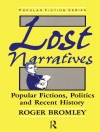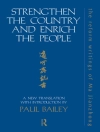New essays employing a multitude of approaches to the works of Kleist, in the process shedding light on our present modernity.
Modernity, according to some views, poses the problem of
homo politicus — the problem of how to act in a moral universe without a ‘master narrative, ‘ without a final foundation. From this angle, the oeuvre of Heinrich von Kleist — novellas, dramas, and essays — addresses problems emerging from a new universe of Kantian provenance, in many ways the same universe we inhabit today.
This volume of new essays investigates Kleist’s position in ourever-changing conception of modernity, employing aesthetic, narrative, philosophical, biographical, political, economic, anthropological, psychological, and cultural approaches and wrestling with the difficulties of historicizing Kleist’s life and work. Central questions are: To what extent can the multitude of breaking points and turning points, endgames and pre-games, ruptures and departures that permeate Kleist’s work and biography be conceptually bundled together and linked to the emerging paradigm of modernity? And to what extent does such an approach to Kleist not only advance understanding of this major German writer and his work, but also shed light on the nature of our present modernity?
Contributors: Seán Allan, Peter Barton, Hilda Meldrum Brown, David Chisholm, Andreas Gailus, Bernhard Greiner, Jeffrey L. High, Anette Horn, Peter Horn, Wolf Kittler, Jonathan W. Marshall, Christian Moser, Dorothea von Mücke, Nancy Nobile, David Pan, Ricarda Schmidt, Helmut J. Schneider.
Bernd Fischer is Professor of German at the Ohio State University. Tim Mehigan is Professor of German in the Department of Languagesand Cultures at the University of Otago, New Zealand.
Table of Content
Introduction – Bernd Fischer and Tim Mehigan
Zu Ende schreiben: Ultimative Strategien im Schaffen Kleists – Bernhard Greiner
‘Sein Nahen ist ein Wehen aus der Ferne’: Ottokar’s Leap in Die Familie Schroffenstein – Nancy Nobile
The Fragmented Picture and Kleist’s Zerbrochner Krug – Dorothea von Muecke
‘So glaubst du jetzt, daß ich dir Wahrheit gab?’ Gender, Power and the Performance of Justice in Kleist’s Der zerbrochne Krug – Sean Allan
Recht als Krieg: Moderne Staatlichkeit und die Aporienlegalistischer Herrschaft bei Heinrich von Kleist – Christian Moser
Representing the Nation in Heinrich von Kleist’s Prinz Friedrich von Homburg – David Pan
Herrschaftsgenealogie und Staatsgemeinschaft: Zu Kleists Dramaturgie der Moderne im Prinzen von Homburg – Helmut J. Schneider
Changing Perceptions of Modernity in Nineteenth-Century German Theater from Goethe to Wagner, with Reference to Kleist’s Prinz Friedrich von Homburg – Hilda Brown
Weiblicher Sadismus, Wutwelt des Liebes-Urwalds, Geschlechtskampf, absolutes Gefühl: Die Penthesilea-Rezeptionin der Moderne – Ricarda Schmidt
Prosodic and Dramatic Tension in the Blank-Verse Dramas of Heinrich von Kleist – Dr. David Chisholm-Univ. of Arizona
Crisis, Denial, and Outrage: Kleist (Schiller, Kant) and the Path to the German Novella(s) of Modernity – Jeffrey L. High
Das Gespenst der Armut: ‘Das Bettelweib von Locarno’ – Zwischen traditioneller christlicher, kantisch aufgeklärter undmoderner marxistischer Auffassung – Peter Horn
The Problem of Knowledge and the Discourse of the Hysteric: Exploring a Lacanian Interpretation of ‘Die Marquise von O. . .’ – Peter Barton
Religion nach der Aufklärung: Die heilige Cäcilie – Identität, Religion und Moderne – Anette Horn
Breaking Skulls: Kleist, Hegel, and the Force of Assertion – Andreas Gailus
Kleist’s ‘Übermarionette’ and Schrenck-Notzing’s ‘Traumtänzerin’: Nervous Mechanics and Hypnotic Performance under Modernism – Jonathan Marshall
Falling after the Fall: The Analysis of the Infinite in Kleist’s Marionette Theater – Wolf Kittler
Notes on the Contributors
Index
About the author
WOLF KITTLER is Professor of German and Comparative Literature, Germanic and Slavic Studies at the University of California, Santa Barbara. He has published widely with monographs on Franz Kafka and Heinrich von Kleist. Recent publications on Impressionism as an effect of the chemical dye industry, on the history of the Greek alphabet from Euripides to Plato, on early wireless technology, on music in Jean Jacques Rousseau’s work, on the history of the concept of ‘risk, ‘ and on transformations in perspective painting from Leon Battista Alberti to Salvador Dalí. Works in progress include: On Wings of Light: A Cultural History of Telecommunication from Antiquity to the Present, and Echo’s Echoes: From Freud to Lacan.












